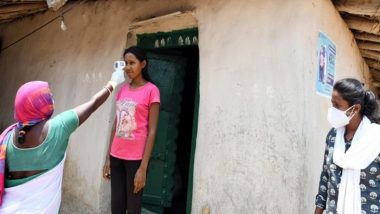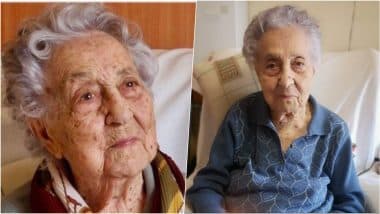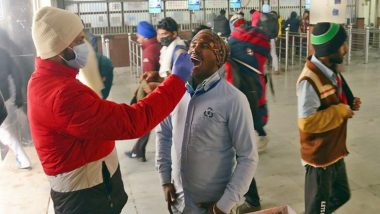New Delhi, July 25: Preparedness levels of India's urban poor and rural population remain abysmally low when dealing with COVID infection at a household level, a survey conducted by research organisation Sambodhi revealed.
Significantly, the survey observes that many urban poor and rural population households lack basic medical equipment to gauge vital health parameters related to COVID.
"Only 9 per cent households had oximeters while a dismal 3 per cent had access to oxygen cylinders. Also, only 40 per cent of respondents were aware of medical suppliers/shops nearby to access in case they had COVID symptoms," the study says. India Reports 39,742 New COVID-19 Cases, 535 Deaths in Past 24 Hours; Recovery Rate Stands at 97.36%.
Conducted in July 2021 in 10 states, the survey shows that among 7,116 households only around 20 per cent had thermometers and about 50 per cent had drugs available to treat symptoms like fever, headaches.
In 10 states namely Uttar Pradesh, Jharkhand, Maharashtra, Chhattisgarh, Odisha, Madhya Pradesh, Tamil Nadu, Bihar, Gujarat, Rajasthan people are largely uninformed about newer variants of COVID-19 virus and the associated symptoms. The respondents also showed a lack of understanding on when to hospitalize a Covid positive person.
About 35 per cent of the respondents said that patients should be hospitalised at the onset of the first symptom, while 18 per cent were of the view that a Covid positive result was reason enough to get the person admitted in a hospital. Global COVID-19 Caseload Tops 193.6 Million, Deaths Surge to More Than 4.15 Million: Johns Hopkins University.
"It seems that there is a need to increase information dissemination among vulnerable sections of society on newer Covid variants, associated symptoms and recommended treatment protocols, so that people take appropriate measures," said Swapnil Shekhar, Co-Founder, Sambodhi.
In a positive outcome the survey shows that around 88 per cent are aware of homecare for Covid patients along with 70 per cent of respondents said they had arrangements for isolating Covid positive family members and 76 per cent said they would be able to make food arrangements.
(This is an unedited and auto-generated story from Syndicated News feed, LatestLY Staff may not have modified or edited the content body)













 Quickly
Quickly




















